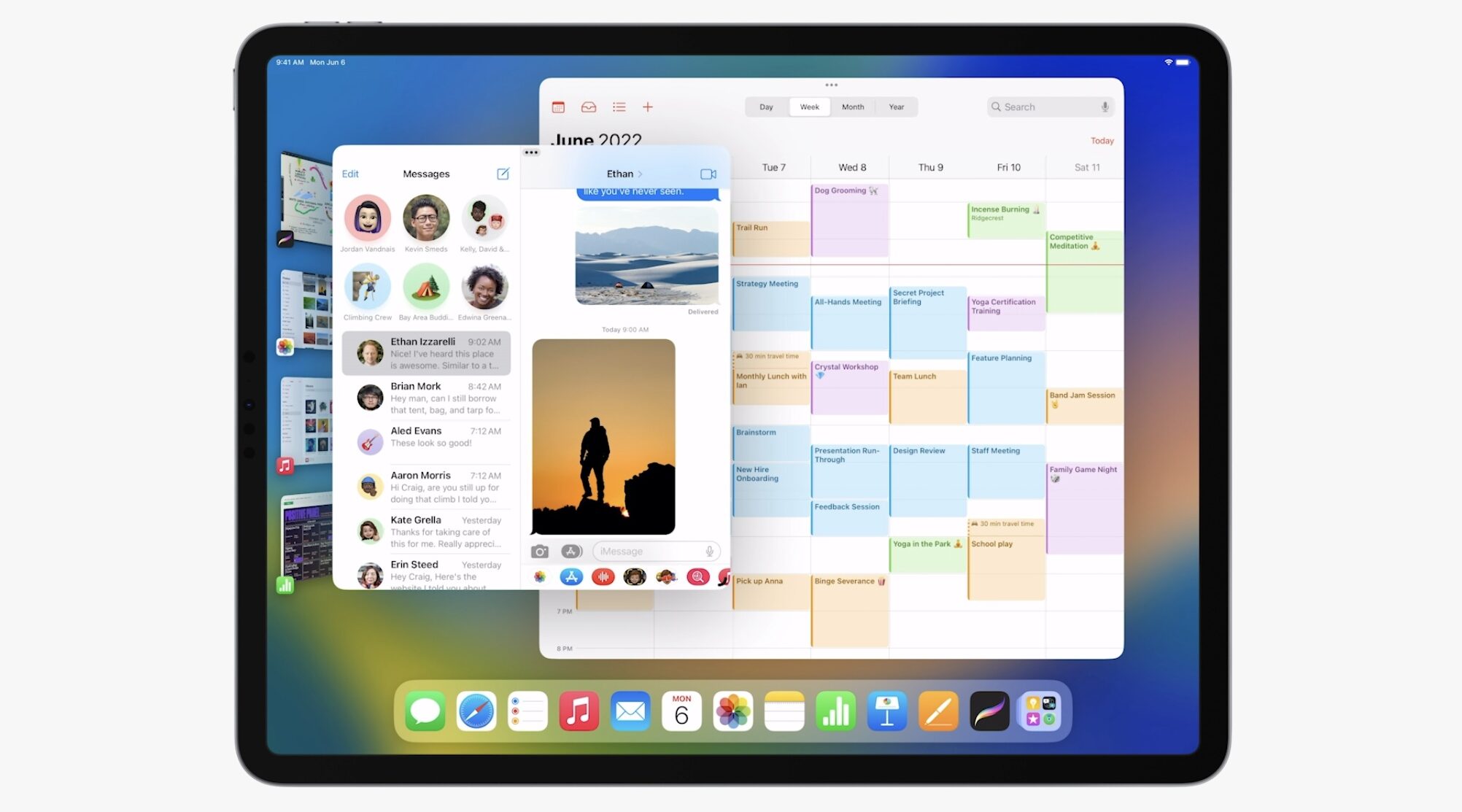One of the biggest new features coming to iPadOS 16 later this year is Stage Manager, the all-new method for multitasking on Apple’s most powerful tablets. Specifically, the iPad models that are equipped with Apple silicon under the hood. Which, for now, is the M1 processor.

And Apple finds itself in a familiar spot ever since it unveiled the new feature. Namely, explaining why it’s limited to certain models. Now, Apple could just say, “Because it is” and leave it at that. Or even just point out that it’s trying to sell M-series iPad models and that should be reason enough. But the company isn’t doing that — and normally doesn’t, either. It usually always has a reason, or reasons, as to why one particular feature (or more) aren’t destined for certain models.
Which is why Craig Federighi is out there, making statements on the matter. In this case, the Apple executive spoke with TechCrunch about Stage Manager, why it’s only destined for iPad (and Macs) with Apple silicon, and more. Interestingly enough, Federighi isn’t even wasting any time, coming right out and saying that Apple already has some improvements planned to the feature that will debut in subsequent betas, before, ultimately, the final public release:
We already had a number of them planned as it relates to stage manager both on Mac and iPad,’ says Federighi. ‘And some of the feedback we’ve received are things where we’re like ‘yeah I mean that that’s coming in seed two or seed three!’ We already have those things identified, either that or bugs or just incomplete elements or tweaks to behavior.
There hasn’t been anything we’ve seen, that has us thinking like, whoa, that is that is unexpected news. Many of them are either the reaction we expect from people who haven’t sort of adapted to the system or in areas where we have refinements in flight. So yeah, we’re certainly going to continue to do that.
So, of course, the big question: why only M1 iPads? Federighi says it’s all about the power these processors have:
It’s only the M1 iPads that combined the high DRAM capacity with very high capacity, high performance NAND that allows our virtual memory swap to be super fast,’ Federighi says. ‘Now that we’re letting you have up to four apps on a panel plus another four — up to eight apps to be instantaneously responsive and have plenty of memory, we just don’t have that ability on the other systems.
Which is why Stage Manager can’t function to its full effect on “lesser systems.”
We really designed Stage Manager to take full advantage [of the M1]. If you look at the way the apps tilt and shadow and how they animate in and out. To do that at super high frame rates, across very large displays and multiple displays, requires the peak of graphics performance that no one else can deliver.
When you put all this together, we can’t deliver the full Stage Manager experience on any lesser system,’ Federighi says. ‘I mean, we would love to make it available everywhere we can. But this is what it requires. This is the experience we’re going to carry into the future. We didn’t want to constrain our design to something lesser, we’re setting the benchmark for the future.
So, what do you think? Do you think Stage Manager is a feature worthy of all that M-series power?